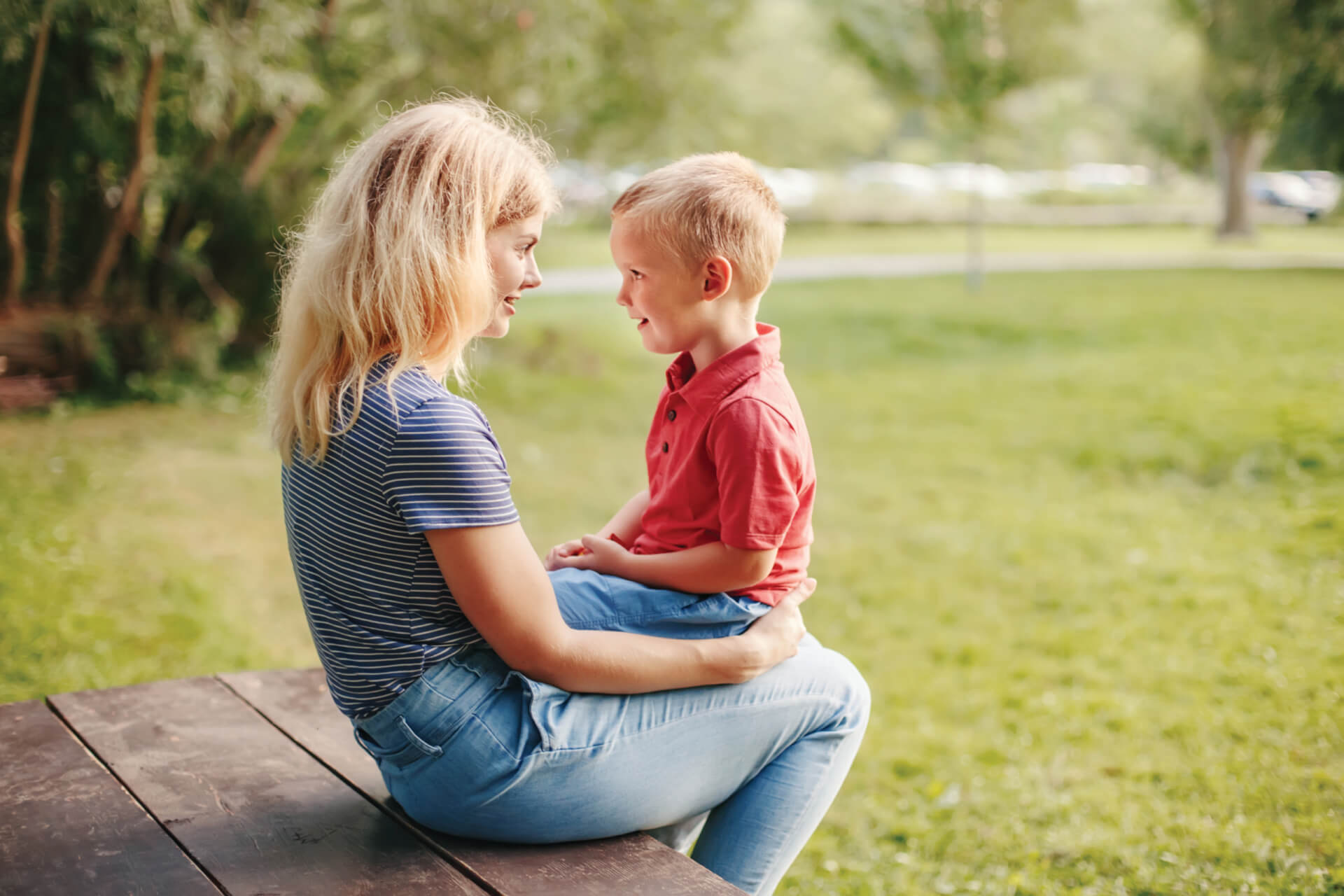
If you had to describe your key attributes, what would they be?
Words have immeasurable power, especially when they become a part of our sense of self, shaping the very fabric of our constitution. Deep-seated and firmly instilled, how do we overcome the limits we have placed on ourselves, and how do we avoid imparting the same kind of limits onto our children?
You might believe yourself to be kind, smart, hopeless at maths or shy in large social settings. Some of those attributes and ‘failings’ will come from your own experience of the world, and some you can probably trace back to a well-meaning adult.
Perhaps it was your dad’s off the cuff , “I was never good at maths at school, you take after me”, or your grandma telling you to “stop being selfish” as she tried to encourage you to share toys with your brother. Sentiments like these can be incredibly powerful, particularly when you are an impressionable child.
Psychologist and author of Parenting Right From the Start Vanessa Lapointe says that parents have enormous power when it comes to shaping a child’s sense of self. “Parents create the environment around the child. That environment is what forms the child’s mind. Of course, temperament and the bigger context of ‘life’ with all its unexpected ups and downs will play a role. But parents are hands down the biggest influence on the narrative a child writes about themselves on their very soul.”
Fortunately, there are ways we can break the perpetuating cycle of negative self-talk for our children. At the same time, we can look to rewrite our own narrative.
Name the behaviour, don’t label the child
We speak thousands of words every day, and within the hurly burly of family life it can be challenging not to get frustrated and call our children ‘naughty’, ‘thoughtless’, or any other harmful label pertaining to challenging behaviour.
Child development specialist Karen Young from Hey Sigmund says, “If we’re talking to them about a negative behaviour, we want to nurture the idea that even though something they did wasn’t very adorable, they are still good kids who are capable of making good decisions.
“On the other hand, labelling them (‘You’re so thoughtless’) rather than their behaviour (‘gluing sparkles into your brother’s hair wasn’t a good idea’) can drive shame. It ties a quality to who they are, rather than what they’ve done. By being specific about the behaviour, we also give them information about how they can do better next time.”
Develop a growth mindset
Coined by American psychologist Carol Dweck, the notion describes mindsets as being either ‘fixed’ or ‘growth’.
In Australia, one of the leading experts in this field is James Anderson. He says it’s about how we view our most fundamental characteristics and abilities, “… when you see them as fixed you look inside, you ask, who am I? What abilities do I have? Can I do this? And with a growth mindset you look outwards and you say, who do I want to become?”
One of the limits of being labelled is believing that you can never be anything else. If we try to develop a growth mindset (and help our children do the same) we can push past those limits.
We can teach our children that it takes effort to get to your goal. Acknowledge that if they have not got there yet it doesn’t mean they won’t make it. James uses the expression “Stretch don’t strain”.
Role modelling this behaviour to our children means trying things our own self-belief tells us we can’t do. This could be working on your child’s maths problem or having a go at ice skating when you’ve convinced yourself you are terribly uncoordinated.
Roll up your sleeves and do your own work
Some words have deeper and more traumatic emotional consequences. Labels like ‘mean’, ‘selfish’ or ‘greedy’ can be more challenging to overcome.
Vanessa says that in order to leave these labels behind, we have to retrain our mind, “Essentially, we must rewrite our own subconscious programming – gifted to us by the experiences of our childhood and perhaps those down the family line as well – so that our automatic reaction is one of graciousness and compassion that we extend to ourselves.”
Part of that process is asking yourself the question, is it really true? Are you really mean, selfish or greedy? Can you think of examples where you didn’t behave this way? Vanessa believes that doing this kind of work is the only way we can avoid passing on the same limiting beliefs to our children.
“You see, the world around us, including our children, is but a reflection of our inner world. If we carry self-limiting beliefs about ourselves, we will then see aspects of that in our children and, since our thoughts create our reality, we will then essentially make that true of our children. So to give our children the best possible chance at growing into the fullest, most resonant version of themselves, we must first extend that experience of growth to ourselves.”























